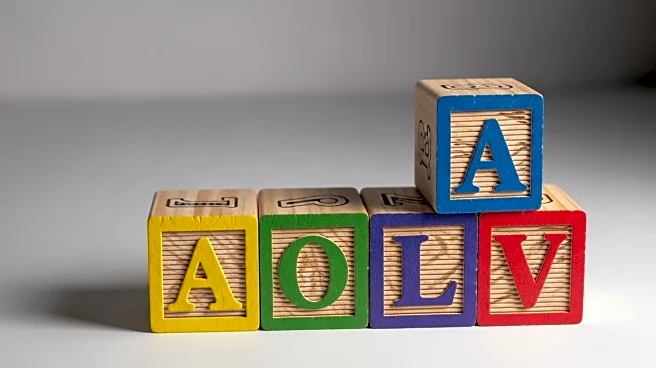What's Happening?
The popular online game Wordle has released its latest puzzle, #1570, for October 6, 2025. Players are tasked with guessing a five-letter word within six attempts, using clues provided by the game. The word for this puzzle is 'AMUSE,' a verb meaning to entertain or make someone laugh. Wordle has become a daily ritual for many, offering a fun and challenging way to engage with language. The game provides feedback on guesses through color-coded tiles, indicating correct letters and their positions, helping players refine their guesses.
Why It's Important?
Wordle's popularity underscores the growing interest in word games and puzzles as a form of entertainment and mental exercise. It has become a cultural phenomenon, with players sharing their results and strategies on social media, fostering a sense of community and competition. The game's simplicity and accessibility have contributed to its widespread appeal, attracting players of all ages. As Wordle continues to captivate audiences, it highlights the potential for digital games to engage users in educational and entertaining ways, influencing how people interact with language and problem-solving.
What's Next?
As Wordle maintains its popularity, developers may explore new features or variations to keep the game fresh and engaging. This could include introducing themed puzzles or expanding the game's mechanics to offer new challenges. The success of Wordle may inspire other developers to create similar games, potentially leading to a surge in digital word games. Additionally, the game's impact on social media trends may continue, with players sharing their experiences and strategies, contributing to its ongoing popularity.
Beyond the Headlines
Wordle's success reflects broader trends in digital gaming and online engagement. It demonstrates how simple, accessible games can capture the public's imagination and become part of daily routines. The game's rise also highlights the role of social media in amplifying digital content, as players share their results and strategies, creating a viral effect. This phenomenon may encourage developers to consider social sharing features in future games, leveraging the power of online communities to drive engagement and growth.









